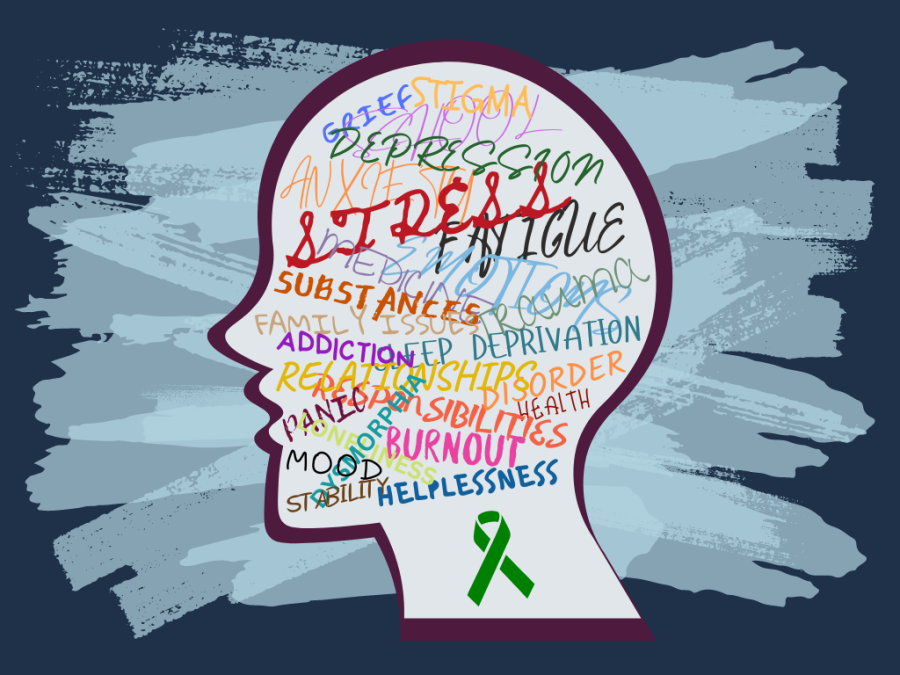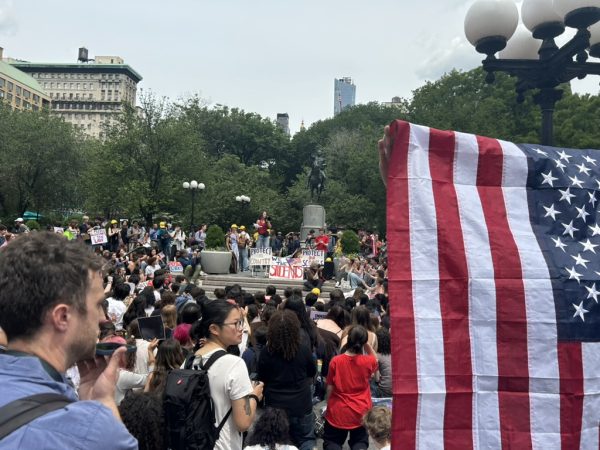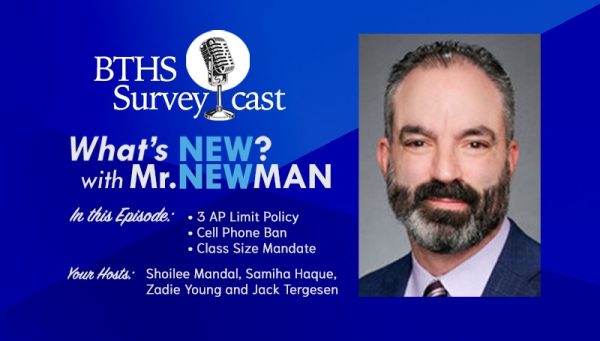New York Students Need Mental Health Days
Following the COVID-19 lockdown, discourse regarding mental health has become increasingly mainstream, especially among adolescents. As the subject has become less stigmatized across generations, and is seen to be as important as physical health, many states have begun to allow students to take excused absences for their mental health, just as they would if they were physically ill.
According to the World Health Organization, behavioral disorders, anxiety, and depression are among the leading causes of disability and illness for teenagers, and according to the Center for Disease Control and Prevention (CDC), suicide is the third leading cause of death among 15-19 year-olds. Additionally, the CDC recently reported that over a third of high school students had persistent feelings of hopelessness and sadness in 2019, a 40% increase from 2009.
Students in specialized high schools face significant academic pressure, in addition to other stress factors such as family issues, responsibilities, and relationships, so mental health days would be an important option for students who desperately need a break.
In reference to mental health days, Principal David Newman said, “They exist for staff and students alike currently, we just don’t talk about it in that regard.” He explained that absences are not excused, only explained, and serve more as a courtesy to teachers, adding that students can take days off for mental health reasons as long as a note is signed by a parent or guardian. Staff members can take mental health days when necessary as part of their paid absences, so allowing students to take days off when necessary, as well, can contribute to an environment that prioritizes their mental well-being.
In 2019, Brad Hoylman, a New York State Senator who represents District 27, including lower and midtown Manhattan, introduced a measure in the New York State Senate that would allow excused student absences for mental health reasons. Senate Bill S3179, “provides for absence from school for the mental or behavioral health of the minor.”
In an interview with The Survey, Senator Hoylman explained, “We have a solemn responsibility to help our students – especially students in high-risk groups – live their most healthy lives, and sometimes that means taking a short break from the often heavy responsibilities of homework, classroom performance, and peer interactions.”
Currently, twelve states allow for mental health days, and four more, including New York, have proposed similar legislation. These measures have experienced growing support from teenagers nationwide who have begun to advocate for increased school support for student mental health, especially since many of them face mental health stigma from parents at home.
Since the COVID-19 pandemic outbreak, schools across the country have also addressed the student mental health by adding social-emotional learning (SEL) days to their calendars; days dedicated to fostering SEL skills in the school community through classroom activities. From spring 2018 to fall 2021, according to a panel of principals and teachers from across the country, the use of formal SEL programs and curricula in schools increased by at least 25% nationwide, and 29 states, including New York, have SEL standards for educators in their school systems.
At Tech, different academic departments teach SEL lessons on specific days throughout the year. However, many students at Tech are dissatisfied with their implementation in classrooms.
“It’s not utilized the way the administration wants it to be utilized, because I know most teachers will just either do some random activity or nothing at all,” said Saira Masud, a senior in the Aerospace Engineering major.
Tech students often do not have time to take care of their mental health outside of their classes, so it is important that they make the most of their time during the school day. Senior Social Worker Ms. Tracyavon Ford said, “It’s really something that should be embedded in the everyday life of the school.”
In addition to mental health awareness in the school community, the opportunity to take mental health days would have a profoundly positive impact on students outside of school. “Being in a state where you’re just constantly going through something and you have bad mental health–that can take serious effects on your physical health, as well,” said Monica Lee, a junior in the Biological Sciences major. “If students are allowed to take a break, that would help with their physical health and also help them academically.”
Of course, there are drawbacks to allowing for mental health days. For example, students would miss instruction, and they might take advantage of the days off to skip classes, exams, or presentations. Nonetheless, mental health days can be an outlet for students who are stressed out by academic or other strains, especially since many already take unexcused absences when they are feeling overwhelmed. Excusing the absences would prove to students that their mental health is valued.
Ford also noted that the battle to protect students’ social and emotional well-being does not end with mental health days. “To take a day and then come back into the same environment that’s continually stressing you is a problem,” said Ford. “It can’t just be giving staff a mental health day and students a mental health day. In addition to that, there has to be a conversation about changing the environment to where it’s not so stressful to staff and students.” She explained that certain schedules can be mentally and physically draining for students, especially if they have to eat lunch much later in the day after consecutive classes. In cases such as these, mental health days might only serve as a band-aid on a much larger issue.
Ford, a NYS Licensed Clinical Social Worker and a Certified Meditation teacher, plays her part in addressing the mental health crisis by running a Mindfulness & Stress Reduction Group for students, as well as a meditation group for Tech staff. Administrators and student leaders have also extended other resources to the student body, such as support from social workers and after-school activities promoting student mental health. Unfortunately, not enough students are aware of these resources, due to either a lack of promotion, or the lack of time to take advantage of them. Having more flexible support systems, during and after school, as well as allowing students to take mental health days, would empower students to take charge of their mental well-being.
Although mental health days are not a perfect solution to teenage mental health struggles, recognizing these struggles, and providing outlets for them, are vital steps in supporting the social and emotional well-being of public school students.
As State Senator Hoylman expressed, “To properly equip our kids for adulthood, we must empower our kids to know themselves and their mental limits. To know that when tragedy or a mental health issue strikes, it’s okay to ask for a day off.”

Sonam Thukral (she/her) is a Co-Editor of Hard News. Sonam is interested in journalism because she finds...











































